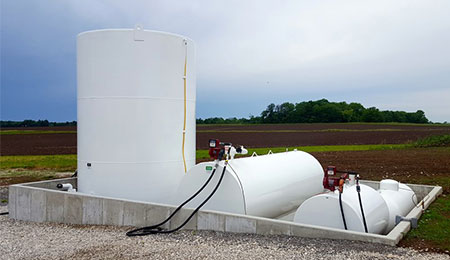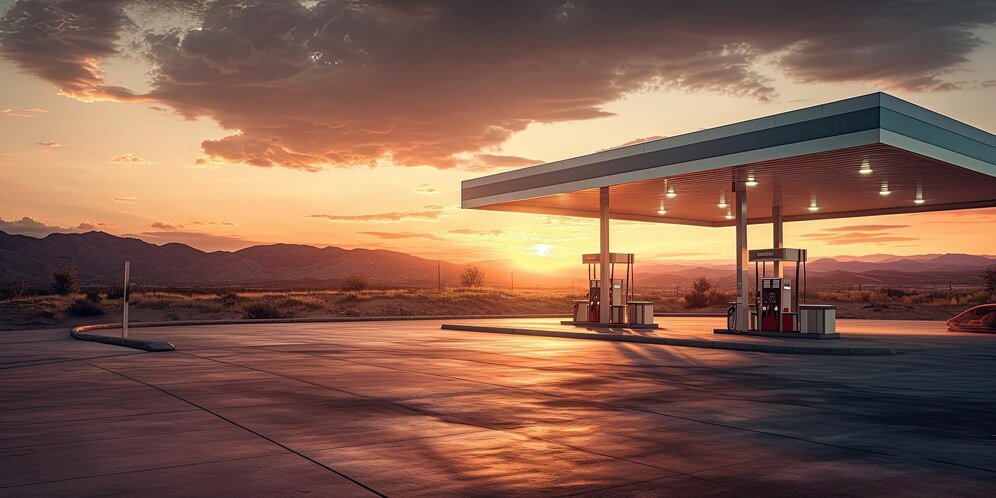Introduction
Underground fuel tanks in Kenya are essential for storing large volumes of fuel safely and efficiently. They help minimize the risk of fuel contamination and ensure a stable fuel supply for businesses. This article, brought to you by Our Lead Technician at Exstream Energy, aims to educate local businesses in Kenya on the various types of underground fuel tanks available, their advantages and disadvantages, and how to choose the right one for their needs.
Exstream Energy is a leading provider of high-quality underground fuel tanks and related services in Kenya. Our expertise and commitment to safety make us the go-to source for businesses looking to install, maintain, or upgrade their fuel storage systems.

Key Types Underground Fuel Tanks in Kenya
Looking for top-quality underground fuel tanks in Kenya? Discover the different types available to suit your needs;
#1: Single-Walled Underground Fuel Tanks
Single-walled underground fuel tanks in Kenya are constructed with a single layer of material, usually steel or fiberglass. They are designed to store fuel underground and are commonly used in small-scale operations.
Advantages
- Cost-effective: Single-walled tanks are generally less expensive than other types.
- Simple installation: Their straightforward design makes them easier and quicker to install.
Disadvantages
- Environmental risks: With only one layer, there’s a higher risk of leaks and environmental contamination.
- Less protection against leaks: These tanks lack the extra security provided by a double-walled system.
Best Suited For
Single-walled underground fuel tanks in Kenya are ideal for small fuel stations with lower fuel turnover, where the risk of leaks and environmental contamination is relatively low.
#2: Double-Walled Underground Fuel Tanks
Double-walled underground fuel tanks in Kenya feature two layers of material, creating an interstitial space between the inner and outer walls. This design enhances safety by providing an extra layer of protection.
Advantages
- Enhanced safety: The additional layer significantly reduces the risk of leaks and contamination.
- Reduced risk of leaks and contamination: Any leaks in the inner wall are contained within the interstitial space, preventing environmental damage.
Disadvantages
- Higher initial cost: These tanks are more expensive than single-walled options.
- More complex installation: The installation process is more involved, requiring specialized skills and equipment.
Best Suited For
Double-walled underground fuel tanks in Kenya are best suited for medium to large fuel stations with higher fuel turnover, where safety and environmental protection are paramount.
#3: Fiberglass Underground Fuel Tanks
Fiberglass underground fuel tanks in Kenya are made from corrosion-resistant fiberglass material. They are lightweight yet durable, offering a long lifespan with minimal maintenance.
Advantages
- Corrosion-resistant: Fiberglass is resistant to rust and corrosion, making these tanks ideal for harsh environments.
- Lightweight and easy to install: Their lightweight nature simplifies the installation process.
- Durable with a long lifespan: These tanks are built to last, providing reliable fuel storage for many years.
Disadvantages
- Higher upfront cost: The initial investment is higher compared to steel tanks.
- Requires careful handling during installation: Proper handling is essential to avoid damage during installation.
Best Suited For
Fiberglass underground fuel tanks are perfect for areas with high groundwater levels or aggressive soil conditions, where corrosion resistance and durability are crucial.
#4: Steel Underground Fuel Tanks
Steel underground fuel tanks in Kenya are known for their strength and durability. With proper maintenance, these tanks can provide long-lasting fuel storage solutions.
Advantages
- Strong and durable: Steel tanks are robust and can withstand significant pressure.
- Long-lasting with proper maintenance: Regular maintenance ensures these tanks remain in good condition for many years.
Disadvantages
- Susceptible to corrosion without proper protection: Steel tanks require protective coatings to prevent rust.
- Heavier and requires specialized equipment for installation: The weight of steel tanks necessitates the use of heavy-duty equipment during installation.
Best Suited For
Steel underground fuel tanks are ideal for industrial sites and high-capacity fuel stations where strength and durability are essential.
Key Considerations When Choosing an Underground Fuel Tank in Kenya
Compliance with Local Regulations
Ensure that the tank you choose complies with all local regulations and standards to avoid legal issues and ensure safety.
Site-Specific Conditions
Consider the specific conditions of your site, such as soil type, groundwater levels, and environmental factors, when selecting a tank.
Fuel Type and Volume Requirements
Different fuel tanks are designed to store different types and volumes of fuel. Choose a tank that matches your fuel type and storage needs.
Maintenance and Inspection Needs
Regular maintenance and inspections are crucial for the longevity and safety of your underground fuel tank. Choose a tank that aligns with your maintenance capabilities and schedule.
Why Choose Exstream Energy for Your Underground Fuel Tank in Kenya Needs?
Expertise and Experience in the Industry
With 30 years of experience, Exstream Energy has the knowledge and skills to provide top-notch fuel storage tank solutions tailored to your needs.
Wide Range of High-Quality Fuel Tanks
We offer a variety of fuel tanks to meet different storage requirements, ensuring you find the perfect solution for your business.
Comprehensive Installation and Maintenance Services
Our services include professional installation and ongoing maintenance to ensure your fuel tank operates safely and efficiently.
Customer Testimonials and Success Stories
Our satisfied customers speak for themselves. Read our testimonials and success stories to see how we have helped businesses like yours.
Common FAQs On Key Types Underground Fuel Tanks in Kenya
What are the maintenance requirements for underground fuel tanks?
Regular inspections, cleaning, and monitoring for leaks are essential to maintain the safety and functionality of underground fuel tanks.
How can I ensure the safety of my underground fuel tank?
Ensure proper installation, regular maintenance, and adherence to local regulations to keep your fuel tank safe.
What is the lifespan of different types of underground fuel tanks?
Fiberglass tanks can last up to 30 years or more, while steel tanks can last 20-30 years with proper maintenance. Single-walled tanks have a shorter lifespan compared to double-walled tanks.
How do I know which type of fuel tank is best for my business?
Consider factors like fuel type, storage capacity, site conditions, budget, and maintenance capabilities when choosing the right fuel tank for your business. Consult with experts like Exstream Energy for personalized recommendations.
Conclusion
In this article, we discussed the different types of underground fuel tanks available in Kenya, including single-walled, double-walled, fiberglass, and steel tanks. Each type has its advantages and disadvantages, making it essential to choose the right one for your specific needs.
At Exstream Energy, we are committed to providing expert advice and high-quality solutions for all your underground fuel tank needs. Contact us today for more information and a free consultation. Let’s help you find the perfect fuel storage solution!




